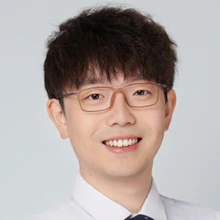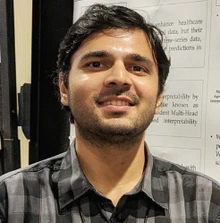When

Monday, September 15, 2025, at 12:00 p.m.
Keating 103 | Zoom | Host: Swarna Ganesh
Weimin Zhou
Assistant Professor, Optical Sciences and Radiology and Imaging Sciences
"AI-Enabled Virtual Imaging Trials for Task-Based Assessment of Image Quality"

Abstract: Modern biomedical imaging systems produce images through complex imaging chains in which numerous system parameters must be specified. Image science provides a rigorous framework for objective, task-based assessment of image quality, which is essential for exploring, evaluating and optimizing system designs. However, because of the great number of system parameters that can affect image quality, the large variety of objects to be imaged, and ethical constraints, it is often impractical to assess imaging systems via clinical imaging trials. These limitations can hinder the development of emerging biomedical imaging technologies. For these reasons, there has been growing interest in virtual imaging trials (VITs) that enable realistic simulations of imaging processes and automated interpretation of biomedical images in silico. Effective VITs rely on two critical components: stochastic object models (SOMs) that characterize realistic anatomical and texture variability and figures of merit that quantify an observer’s performance on specific clinical tasks. In this talk, I will introduce artificial intelligence (AI) approaches that employ deep generative networks to establish realistic SOMs from imaging measurements and to compute the Bayesian Ideal observer (BIO) for assessing task-based image quality.
Bio: Weimin Zhou is an assistant professor at the University of Arizona (UA), with appointments in the Wyant College of Optical Sciences (OSC) and the Department of Radiology & Imaging Sciences at the College of Medicine-Tucson (COM-T). He earned his PhD in electrical engineering from Washington University in St. Louis (WashU) in 2020 and served as a postdoctoral scholar in the Department of Psychological & Brain Sciences at the University of California, Santa Barbara (UCSB) from 2020 to 2022. Before joining UA in 2025, he was an assistant professor at Shanghai Jiao Tong University (SJTU) from 2022 to 2024. Zhou is the recipient of the SPIE Community Champion Award and the SPIE Medical Imaging Cum Laude Award. He serves as a program committee member for SPIE Medical Imaging, an area chair for the Conference on Health, Inference, and Learning (CHIL), an area chair for the Machine Learning for Health (ML4H) Symposium, and a reviewer for a wide variety of journals. His research aims to facilitate the objective assessment and optimization of image quality, as well as to understand and improve how humans and machines interpret medical images to support radiological decision-making. He has been active in publishing research articles in peer-reviewed journals, such as IEEE Transactions on Medical Imaging, Medical Physics, Optics Express, Journal of Biomedical Optics and Journal of Medical Imaging.
Shashank Yadav
PhD Candidate, Biomedical Engineering
"Prediction, Interpretation and Counterfactual Generation in Acute Care"

Abstract: Organ failure in critically ill patients is a dynamic process shaped by evolving physiological states and complex interactions across multiple organ systems. Anticipating these changes and understanding their drivers are important for improving patient outcomes, yet current tools often lack the ability to provide both accurate forecasts and clinically meaningful insights. There is also a need to move beyond prediction to explore "what if" scenarios that can guide treatment decisions and offer actionable strategies at the bedside.
In this talk, I will present an integrated framework for advancing AI-related translational sciences that addresses these challenges through three complementary components. First, we developed predictive models using longitudinal clinical data to forecast the onset and progression of organ dysfunction and offer early warnings of deterioration. Second, we applied interpretable methods to highlight the clinical variables and temporal patterns that are most relevant to model outputs and provide transparency and alignment with biomedical domain knowledge. Third, we used counterfactual generation techniques to simulate alternative patient trajectories and explore how changes in treatments or physiological states could have influenced outcomes. Our results on real-world intensive care datasets demonstrate strong predictive performance, interpretable explanations that resonate with clinicians, and counterfactual scenarios that are both plausible and actionable. Together, these contributions create a unified approach to validate AI-based approaches that integrates prediction, interpretation, and counterfactual reasoning to support more informed and timely decision making in critical care.
Bio: Shashank Yadav is a final-year PhD candidate at the University of Arizona, focusing on AI applications in critical care and translational medicine. He received his bachelor's and master's degree in biotechnology from the Indian Institute of Technology Delhi in New Delhi, India. Before joining UA, he conducted research at the University of Michigan Medical School, where he gained experience at the intersection of biomedical data science and cancer research.
Accessibility: Persons with a disability may request a reasonable accommodation by contacting the Disability Resource Center at 621-3268 (V/TTY).
